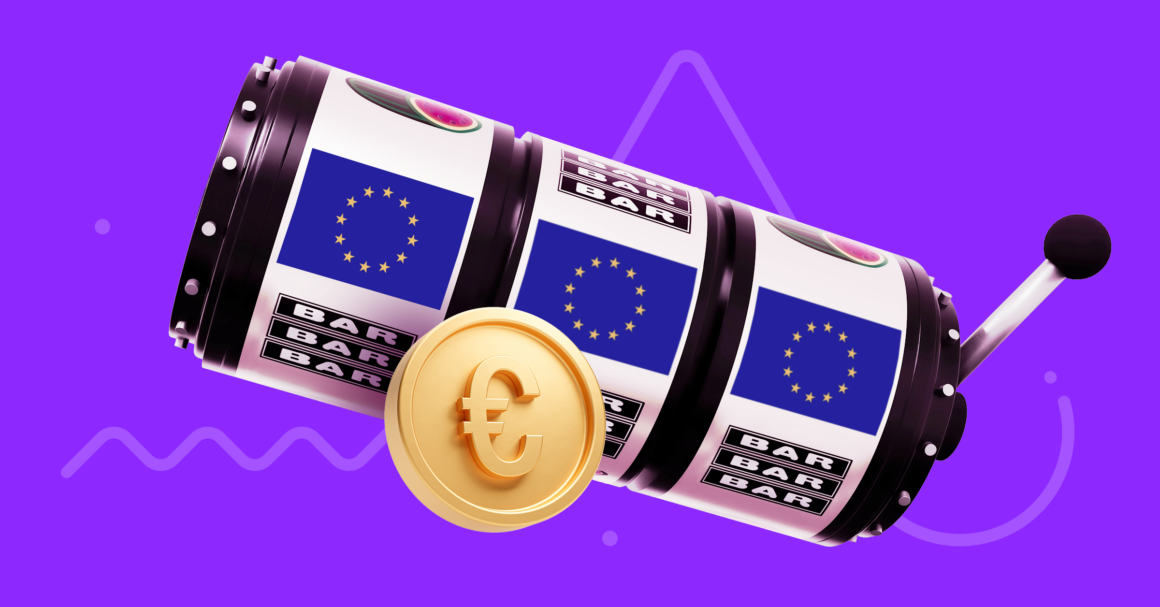Gambling has long been a popular recreational activity in Europe, with a rich history spanning centuries. Its newest incarnation, online gambling, is a popular form of entertainment that, although under many restrictions, thrives in Europe more than in other parts of the world.
Anyone interested in online gambling regulations in the EU & UK needs to understand that the legal framework is complex, differs between countries, and evolves constantly. Nevertheless, for players and online casino operators, Europe is the place to be.
This article covers the general aspects of online gambling, such as what it is, how big a portion of all gambling activities it represents, what the EU’s general approach to online gambling is, and how each country regulates online gambling.
What is Online Gambling?
Online gambling, sometimes referred to as iGaming, is a form of entertainment where two parties use online websites or apps to bet on a game whose outcome is largely unpredictable.
Typically, online gambling includes the following game types:

The definition is not strict, and there is an ongoing discussion about how inclusive it should be.
For example, in response to the many restrictions regarding iGaming in the US, many companies that run standard land-based casinos offer a “casino-like” online experience, often referred to as “social casinos,” where no money is being exchanged. The point of a social casino is to play a game using virtual currencies that are not exchangeable for fiat currencies.
On the other hand, the unpredictability of a game’s outcome has led regulators to the surprising realization that loot boxes in video games, due to the random nature of the reward, are also a form of gambling.
Popularity of Online Gambling
Europe is often seen as the world’s gambling capital, and not without merit. Gambling is historically a popular form of entertainment in Europe, and a favorable legislation allowed for the creation of so-called “hubs” in Gibraltar and Malta. These hubs operate global online gambling platforms that are accessed by players from all around the world, from jurisdictions where it is legal and from those where it is not.
Nowadays, gambling is a big industry in Europe. Here are some selected statistics:
- The total revenue of the European gambling market reached 81.1 billion euros in 2020, a figure which was forecasted to increase to 126.3 billion by 2026.
- In 2019, Europe had an online gambling market channelling rate of 73.5%, meaning that nearly three-quarters of online gambling activity took place in the regulated market, while 26.5% of activity took place in grey and black markets.
- The market share of online gambling is growing steadily and is expected to reach 33.6% of Europe’s gross gaming revenue by 2025.
- The European country with the highest share of its gambling activity taking place online was Sweden at 66.2%. Denmark and the United Kingdom followed in the ranking with online gambling market shares of 59.4 percent and 59.3 percent, respectively.
The five selected European countries with the highest gross gaming revenue (GGR) in Europe in 2020 are:
- United Kingdom
- Italy
- Germany
- France
- Spain
Challenges of the Online Gambling Industry in Europe
The industry is rising in popularity but still faces several challenges and hurdles that will need to be overcome through tighter regulation.
The first challenge is to limit access to gambling services for minors. This can be done through KYC (Know Your Customer) policies that allow platforms to verify users before enabling them access.
The other challenge that the industry faces involves the addictive potential of online gambling. Due to its omnipresent nature, online gambling has a high chance of being overused by mobile-first societies. This concern has led various regulatory bodies in countries to adopt limitations on the availability of online gambling services. Some countries only allow state-controlled gambling monopolies, such as lotteries, to run online gambling services. Others have a licensing system that introduces more parties to the mix.
Online Gambling in the EU
The European Union (EU), although seen as all-encompassing by residents of non-European countries, leaves its member states a lot of freedom to regulate various aspects of social life, including gambling. The EU does not have any standardized laws regarding online gambling, and EU member states are autonomous in regulating this matter.
This has resulted in many different and often conflicting approaches to online gambling. For many countries, online gambling is an uncharted territory.
Let’s go over the most interesting cases.
Key Regulations Regarding Online Gambling in Selected European Countries
United Kingdom

The UK is Europe’s most gambling-friendly place, with 30% of all gaming revenue in Europe generated there. Gambling in the United Kingdom is regulated by the Gambling Commission, which acts as the core regulator and authority for gambling in the country. Under its supervision, both land-based and online gambling are legal as long as the provider is licensed. The primary legislation that applies to both land-based and online gaming is the Gambling Act 2005.
The point of this act was to:
- Prevent gambling from being a source of crime or disorder
- Ensure that gambling is conducted in a fair and open way
- Protect children and other vulnerable persons from being harmed or exploited by gambling.
Now, online gambling is legal in the UK for all licensed parties.
There are many different laws and regulations covering gambling in the UK. They include focus points such as fraud prevention, anti-underage gambling, know your customer requirements, anti-money laundering checks, operator advertisement limitations, and much more.
Italy
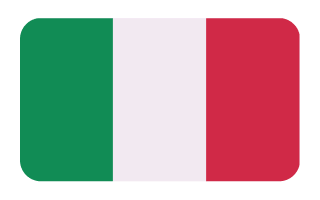
Italy is Europe’s second-largest online gambling market and the biggest one in the EU. The amount wagered in the online gambling market in Italy reached over 67 billion euros in 2021, with a gross gaming revenue (GGR) of around 3.72 billion euros.
Online gambling is a legal and regulated activity in Italy, subject to a local licensing regime by the Customs and Monopolies Agency (ADM). Online gambling operators must obtain a license from ADM to offer their services to Italian customers. Online gambling covers various types of games, such as sports betting, casino games, poker, bingo, lotteries, and virtual betting. However, betting on blood sports is prohibited.
Some of the key regulations regarding online gambling in Italy are:
- Online gambling operators must have a physical presence in Italy or in another EU country and must use a .it domain name for their website.
- Online gambling operators must pay a tax of 20% on their gross gaming revenue and must contribute to a fund for the prevention and treatment of gambling addiction.
- Online gambling players must be at least 18 years old and must register with a valid identity document and tax code. They must also set a maximum spending limit and respect the self-exclusion system.
Germany
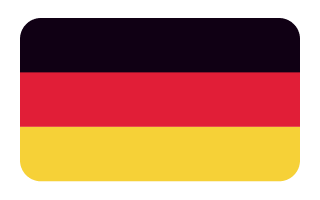
According to the European Gaming and Betting Association (EGBA), Germany is the third-largest online gambling market in Europe, after the UK and Italy. The most popular online gambling activities in Germany are sports betting, online casino games, and online poker.
Online gambling in Germany is regulated by the Interstate Treaty on Gambling (ITG), which came into force in July 2021. The ITG aims to protect players, prevent addiction, and combat fraud and money laundering. Some of the key regulations regarding online gambling in Germany are:
- Online casino games, poker, and virtual slot machines are legal and subject to licensing and taxation.
- Online sports betting is also legal and subject to licensing and taxation, but operators have to comply with certain limits on the types and amounts of bets they can offer.
- Online gambling operators have to implement measures to ensure responsible gambling, such as setting deposit limits, providing self-exclusion options, and displaying warnings and information on the risks of gambling.
Spain
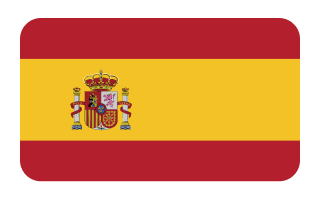
Online gambling is a growing and lucrative industry in Spain, with a steady increase in revenue and user penetration over the years, making it one of the largest markets in Europe. The revenue generated by online gambling through card transactions reached more than 2.6 billion euros in 2021, up from 470 million euros in 2014. The online gambling market in Spain is projected to reach $1.78 billion in 2023, with an annual growth rate of 7.08% from 2023 to 2027.
The most popular online gambling activities in Spain are:
- Sports betting: Sports betting accounted for more than half of the online gambling revenue in 2021, with a market volume of $0.85 billion projected for 2023.
- Online casino games: Games such as slots, roulette, blackjack, and poker also attracted a large number of users and generated significant revenue. Online casino games rose by 9.2% from Q2 to Q3 in 2020, reaching €128 million ($135.65 million).
Online gambling in Spain is regulated by the Directorate General for the Regulation of Gambling (DGOJ), which oversees the licensing, supervision, and control of online gambling operators and activities. The DGOJ also ensures that online gambling is conducted in a safe, responsible, and transparent manner, protecting the rights and interests of customers and preventing fraud and money laundering. Online gambling operators must comply with the legal and technical requirements established by the DGOJ, as well as pay taxes on their gross gaming revenue.
France
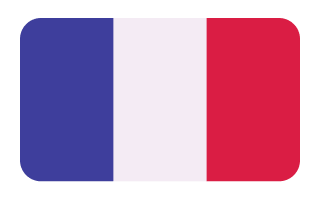
Online gambling is a growing sector in France, with an estimated market size of 1.9 billion euros in 2020. The most popular online gambling activities in France are sports betting, poker, and horseracing betting, which accounted for 62%, 24%, and 14% of the gross gaming revenue (GGR), respectively. The number of online gambling players in France was 16.1% of the population in 2019, with the majority being young males aged 18 to 24 years old. Online gambling in France is regulated by the Autorité nationale des Jeux (ANJ), which issues licenses to authorized operators and ensures consumer protection and responsible gambling.
The ANJ also ensures that the legal gambling offer is fair, recreational, and safe for players, and that it prevents fraud, money laundering, and sports manipulation. The most important things to know about France’s online gambling market are:
- Legal gambling age: French residents can register and place real-money bets online as long as they are at least 18 years old.
- Approved banking instruments: The balance of players from France can be funded only with certain approved banking instruments, such as credit cards, bank transfers, or prepaid cards. Cryptocurrencies are not allowed.
- Enforcement of gambling-related debts: Debts resulting from gambling-related activities are not enforceable in France. This means that players cannot sue operators or other players to recover their losses.
Gambling Hubs
The generally more favorable approach of European countries towards online gambling than that of the US has resulted in the birth of so-called “gambling hubs.” These are GEOs that have very welcoming legislation toward this form of entertainment. They have become home to many online gambling companies with global reach and audiences.
The two most notable hubs are in Malta and Gibraltar.
Malta
In Malta, online gambling is regulated under the Gaming Act (Chapter 583 of the Laws of Malta) and its subsidiary legislation. The Malta Gaming Authority (MGA) is responsible for issuing licenses and ensuring that licensees conduct their operations in accordance with their licenses and maintain the good reputation of Malta.
Gibraltar
Gibraltar is a UK-dependent territory. Therefore, all gambling operations require licensing under the aforementioned UK’s Gambling Act 2005. Remote Gambling licenses, including those for telephone and Internet betting, are issued by the Licensing Authority. The Gambling Commissioner is granted powers to ensure that licensees conduct their operations in accordance with their licenses and maintain the good reputation of Gibraltar.
Europe is the place to be for online gambling companies
This rundown of the various approaches to the legal status of online gambling in the most popular markets creates an image of Europe as a go-to place for marketers, casino operators, and iGaming platforms.
And while this is true, the most important takeaway should be that there is no universal law regulating online gambling in Europe. Each country has its specific approach, and while most regulate it to some degree through a specialized government body, some countries are stricter than others when issuing licenses.
Online gambling tracking
The performance of online marketing campaigns can be easily tracked by a specialized performance ad tracker such as Voluum. iGaming marketing, although following a separate set of laws, is still governed by the same principles of digital marketing: testing is key, and performance needs to be monitored.

